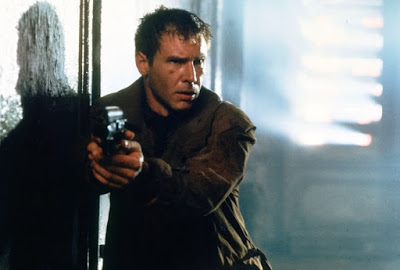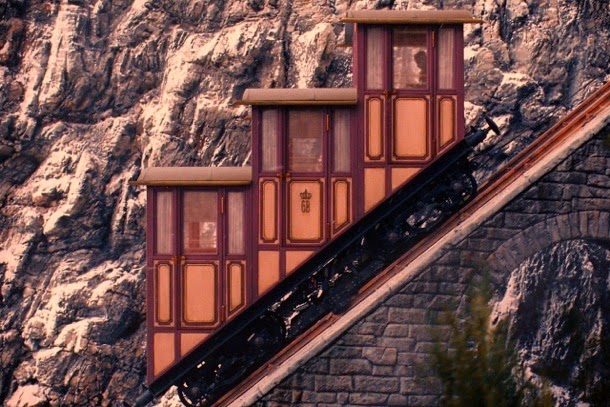Like many nerds, I met CONAN THE BARBARIAN when I was a teen-ager in the 80's. Wait a minute, let me rephrase that. I should instead clarify that I was introduced to the character, along with the concept of what an R-rated sword and sorcery movie looked and sounded like. Previously, I had only a passing familiarity with the CONAN novels and comics books purely from browsing the Sci-Fi & Fantasy section at book stores. I'd never been motivated to fully investigate his specific world, created by author Robert E. Howard. Maybe the color-saturated muscle-bound cover art seemed too far outside my usual reading wheelhouse of space stations and starships. So, when the 1982 movie adaptation, led by Arnold Schwarzenegger, was selected by a friend of mine as a home video rental for a scheduled sleepover, I held only a vague idea of what to expect. I'd heard rumors its contents included plenty of blood and boobs, but by the time the main credits began the lasting impression for me was from the powerful, hypnotic and engaging music the film showcases, composed by the late, great Basil Poledouris.
The aforementioned sleepover was hosted by a friend of mine named Jeremy. We'd first met back in the sixth grade while both attending school in Durham, NC and he was the only friend I knew who had divorced parents. I'm sure if my family had remained in one location for more than a handful of years I would have encountered this scenario more often, since it became quite standard by the 80's. However, we'd been moving often up until then, leaving me to always start over with a clean slate in terms of peer groups. From the outside looking in, Jeremy had all the surface advantages of two Christmases and two birthdays, thanks to the intermittently present father ever eager to please him with gifts, while only his mom played the role of disciplinarian. I might've envied his extensive and shiny array of toys and games, but his life seemed chaotic to me. Packing up and moving houses with my own family every few years was already a dreaded occurrence and I couldn't imagine splitting time between two houses and both parents.
Soon after sixth grade Jeremy and his mom moved to Creedmoor, about an hour away from Durham. We kept in touch by phone and planned weekend sleepovers when our respective parents felt generous enough to make the drive. It was during those subsequent years, grades seven though nine, that I really needed a consistent friend, as it wound up as a difficult time socially. To be frank, rednecks and mullets were in vogue at my school, ruling the roost and kicking ass. I never successfully brandished the mullet look and thus for contrast I sported the perennially unpopular look of gawky, bespectacled nerd. It really just came to me naturally, don't be jealous. As expected, I experienced the exhausting extremes of being either completely invisible to the other kids or being mocked and bullied by them, with no real reliable friends for support. A kid who accepted me one day might attempt to light my jeans on fire the next, the lighter in question smuggled in for smoking out in the school parking lot.
It was always such a welcome respite to get a call from Jeremy. Whether chatting on the phone or scheduling to hang out, I looked forward to it as an occasion with no judgments from someone my own age. Our get-togethers consisted of the usual teen agenda of movies, video games and junk food. And while Nintendo's "Castlevania" held my rapt attention, I never caught the gaming bug as so many others did of my generation. Jeremy and his mom lived in a mobile home as part of a full-on trailer park community, with a yawning ditch and dingy creek as his backyard. It felt a far cry from my home, a two-story ranch house cozily couched in a Rockwell-inspired neighborhood of emerald-colored lawns and white-trimmed window sills. However, on the upside Jeremy owned a moped scooter which granted us the freedom of brief jaunts to grab pizza without needing his mom as chaperon. As an aside, I find it amusing now that at the age of thirteen most kids desperately wished to appear as if we had no parents whatsoever, oblivious to the fact that no one would be convinced we were self-sufficient.
The music accompanying one specific sequence I found beguiling enough to rewind the VHS tape and watch it again the next morning. During the sequence, Conan infiltrates a strange, religious cult in their imposing temple stronghold. The cue which colors his journey inside features a theme only heard here. It isn't menacing, as one might expect, but instead it swaggers and sounds proud to the point of arrogance, confident in its ability to convert any outsider with its sweeping charm. It's a cue that wasn't included on the original soundtrack album back in 1982, thus once more that frustrated grumble of the movie music aficionado emanated from me that day. I was quickly growing accustomed to this disappointment, yet it still boggled my burgeoning collector's brain as to why certain wonderful pieces of music were excluded. Nevertheless, the album sported a stunning collection of tracks from the movie. Unfortunately, it's single playback during a long family road trip failed to win over anyone else, with my dad quipping during the final crescendo, "Is this when Conan walks off into the sunset with his girlfriend?".
Contact between Jeremy and I dwindled when we both entered our respective high schools. My family had moved yet again, further away this time, to Rocky Mount, meaning visits became more infrequent. Plus. it was becoming obvious that as people he and I were no longer growing up in the same direction, instead emerging with different temperaments and interests. Jeremy later learned I was headed to Guilford College after graduation. He decided to join me there as well for freshman class. Surprisingly, for a campus of only twelve hundred students we didn't see very much of one another. His dorm wasn't even very far from mine. It's not uncommon for any one of us to outgrow friends we kept as kids, but Jeremy had primarily been my only consistent friend during some lonely years. It was an awkward and sad fact to acknowledge that we'd essentially turned into strangers as young adults. It certainly didn't diminish the value of the role he played during my teens. It was another reminder for me, however, about the impermanence of people in our lives and the fluidity of our respective roles to each other. Not to sound like a dour philosopher or 60's folk singer, but sometimes we're all just shifting around like loose stones in a nimble stream, our surfaces slowly changing while we gradually tumble in different directions.























.jpg)














